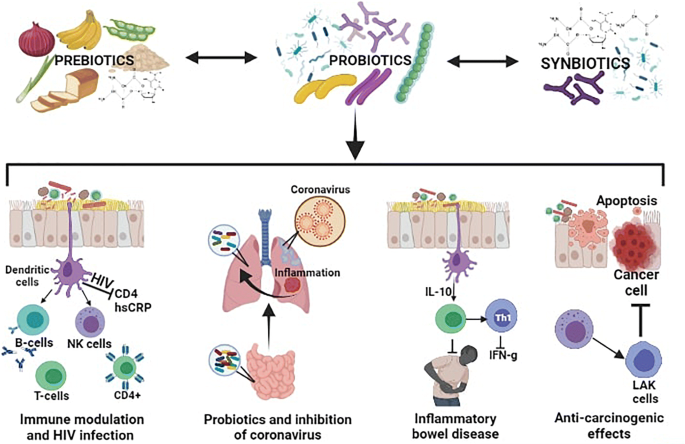The human gut microbiome, containing trillions of living microorganisms, plays a crucial role in digestive health, immune function, and overall wellbeing. Understanding how prebiotics and probiotics support this complex ecosystem can help individuals make informed decisions about gut health optimization. This evidence-based guide explores the science behind these beneficial compounds and their role in maintaining digestive wellness.

Understanding the Gut Microbiome
The gut microbiome consists of diverse microorganisms, primarily bacteria, that inhabit the digestive tract. This ecosystem helps process food, produces essential vitamins and minerals, supports immune system function, and may influence mood and cognitive health through the gut-brain connection.
Research indicates that a diverse, balanced microbiome is associated with better overall health outcomes. Factors such as diet, stress, medications, and lifestyle choices can significantly impact microbiome composition and function.
Prebiotics and Probiotics: Key Differences
Prebiotics: Food for Beneficial Bacteria
Prebiotics are specialized plant fibers that serve as food sources for beneficial gut bacteria. Unlike probiotics, prebiotics are not living organisms but rather nutrients that help existing good bacteria flourish and multiply.
Common Prebiotic Sources:
- Fruits: Bananas, apples, berries, and citrus fruits
- Vegetables: Garlic, onions, asparagus, leeks, and artichokes
- Whole Grains: Oats, barley, wheat, and quinoa
- Legumes: Beans, lentils, and chickpeas
- Nuts and Seeds: Almonds, flaxseeds, and chia seeds
How Prebiotics Work: Prebiotics resist digestion in the small intestine and reach the colon intact, where beneficial bacteria ferment them. This fermentation process produces short-chain fatty acids, which may support digestive health and provide energy for intestinal cells.
Probiotics: Beneficial Living Microorganisms
Probiotics are living microorganisms that, when consumed in adequate amounts, may provide health benefits. The most common probiotic bacteria belong to the Lactobacillus and Bifidobacterium families.
Natural Probiotic Sources:
- Fermented Dairy: Yogurt with live active cultures, kefir, and some cheeses
- Fermented Vegetables: Sauerkraut, kimchi, and naturally fermented pickles
- Fermented Beverages: Kombucha and traditional kvass
- Other Fermented Foods: Miso, tempeh, and naturally fermented sourdough
Probiotic Mechanisms: Research suggests probiotics may support digestive health through various mechanisms, including competing with harmful bacteria for resources, supporting the intestinal barrier, and potentially modulating immune responses.
Food Sources vs. Supplements
Whole Food Advantages
Obtaining prebiotics and probiotics from whole foods offers several benefits:
- Nutrient Diversity: Whole foods provide additional nutrients, fiber, and compounds that work synergistically
- Natural Balance: Foods contain multiple beneficial compounds in naturally occurring ratios
- Cost-Effective: Generally more affordable than supplements
- Regulatory Status: Foods are subject to established safety regulations
Supplement Considerations
While supplements can be convenient, several factors should be considered:
Quality Variability: The Food and Drug Administration regulates dietary supplements differently than foods and medications, which may result in variability in quality and potency.
Strain Specificity: Different probiotic strains may have different effects. Research on specific strains doesn’t necessarily apply to other strains of the same species.
Storage and Viability: Many probiotic supplements require specific storage conditions to maintain bacterial viability.
Safety and Usage Guidelines
General Safety
For most healthy individuals, consuming prebiotics and probiotics through food sources is generally considered safe. However, some people may experience temporary digestive adjustments when increasing intake.
Common Initial Effects:
- Mild bloating or gas
- Changes in bowel movement frequency
- Temporary digestive discomfort
These effects typically resolve as the digestive system adapts to increased fiber and beneficial bacteria.
Special Populations
Certain groups should exercise additional caution:
Immunocompromised Individuals: People with weakened immune systems should consult healthcare providers before using probiotic supplements, as there have been rare reports of infections.
Critical Illness: Individuals with severe medical conditions should seek medical guidance before making significant dietary changes or adding supplements.
Medication Interactions: Some supplements may interact with medications, making professional consultation important for people taking prescription drugs.
Implementing Gut Health Strategies
Gradual Introduction
When increasing prebiotic and probiotic intake:
- Start with small amounts to allow digestive adaptation
- Gradually increase portions over several weeks
- Monitor how your body responds
- Maintain consistency for optimal benefits
Dietary Diversity
Focus on consuming a variety of prebiotic and probiotic foods to support microbiome diversity:
- Rotate Food Sources: Include different types of fermented foods and prebiotic-rich vegetables
- Seasonal Eating: Take advantage of seasonal produce for variety
- Whole Food Focus: Prioritize minimally processed foods when possible
Lifestyle Factors
Supporting gut health extends beyond diet:
Stress Management: Chronic stress can negatively impact gut bacteria. Consider stress-reduction techniques like meditation, regular exercise, or adequate sleep.
Antibiotic Awareness: While antibiotics are sometimes necessary for treating bacterial infections, they can also affect beneficial gut bacteria. Discuss gut health support with healthcare providers when antibiotic treatment is needed.
Physical Activity: Regular exercise may positively influence gut microbiome diversity and overall digestive health.
Evidence-Based Benefits
Research suggests that prebiotics and probiotics may support:
- Digestive Comfort: Some studies indicate benefits for occasional digestive discomfort
- Immune Function: The gut houses a significant portion of immune system tissues
- Nutrient Absorption: A healthy gut environment may support optimal nutrient utilization
- Overall Wellness: Emerging research explores connections between gut health and various aspects of wellbeing
Making Informed Choices
When considering prebiotics and probiotics for gut health:
- Prioritize Food Sources: Focus on incorporating diverse, naturally occurring sources into your diet
- Consult Professionals: Speak with healthcare providers, especially if you have underlying health conditions
- Quality Matters: If choosing supplements, research manufacturers and look for third-party testing
- Individual Responses: Remember that effects can vary significantly between individuals
- Holistic Approach: Consider gut health as part of overall wellness, including diet, exercise, stress management, and adequate sleep
Supporting gut health through prebiotics and probiotics represents one component of a comprehensive approach to digestive wellness. While research continues to expand our understanding of the microbiome’s role in health, focusing on diverse, nutrient-rich foods and healthy lifestyle practices provides a solid foundation for supporting this complex and important ecosystem.